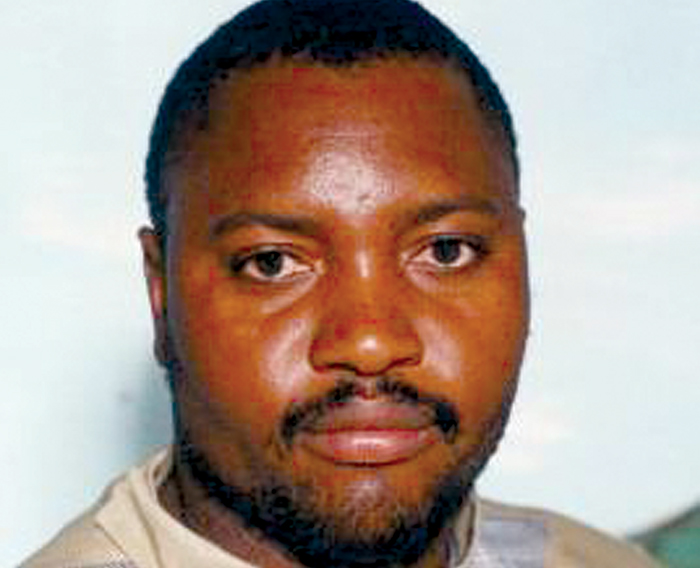
In his book, The Audacity of Hope, Barack Obama viewed himself as a prisoner of his own history. He interpreted his American experience using the lens of a black man of mixed heritage, perennially aware of how people of the black pigment were subjugated and stigmatised, resulting in the subtle and not so subtle way that race and class continue to shape lives. The imprisoning biography became a source of his liberation and that of America.
Moses Tsimukeni Mahlangu
The strength and common theme in Obama’s campaign speeches was a one to one relationship between effort and opportunity, spiced with the promise of hope and change. “Americans planning to start small businesses or applying for a driver’s licence do not expect to pay a bribe”, he once quipped. The myth of the streets of gold and land of milk and honey had become forgones, yet Obama’s election manifesto questioned this logic.
Backdrop — the Dalit of India are outcasts, Muslim battles between the Sunni and Shia are raging, the Roma of Eastern Europe have been exploited for over 600 centuries. In America, it took 144 years for the slave, who built the White House, to become President in the White House. The August 2004 scenario, shows 21% of black men in their twenties were behind bars, a third of black children were living in abject poverty. Hispanics were 3,3 times more likely to be imprisoned than their white counterparts, their per capita wealth was 50% of their white counterparts, 35,9 million of Americans translating to 10% of the total population, lived below the poverty datum line. The education system reflected these disparities. It was not only a question of black and white American, but a poor one and a rich one, a privileged one and a neglected one, an America, where much was possible and one anchored in place by despair. Confronted by this gloomy picture, Obama in 2004 spelt out his view of an America that Americans yearned for in 17 words, “There is not a black America or a white America…… There is the United States of America”.
The challenge jumping out of this statement is thought provoking to both African Americans and White Americans.
What lessons can Zimbabweans learn from this altruism? Thirty five years ago the Union Jack was lowered and the Zimbabwean flag was hoisted, symbolising self-rule. During the first 10 years of independence, there was immense goodwill on the part of government to better the lives of the hitherto down trodden blacks. Labour laws, which are a thermometer to gauge government’s care for its human capital, were cutely improved.
However, on the political and economic fronts were some dark spots, the Gukurahundi massacres and the Economic Structural Adjustment Programme (Esap) to name a few.
Unbelievably, 35 years down independence lane, we still find the Jeremiah Wright and Obama factors. Obama’s remarks that Wright was just his pastor triggered an avalanche of bitterness between the two, as Wright felt demeaned. The tiff between Wright and Obama was not two different world views but two different worlds.
- Chamisa under fire over US$120K donation
- Mavhunga puts DeMbare into Chibuku quarterfinals
- Pension funds bet on Cabora Bassa oilfields
- Councils defy govt fire tender directive
Keep Reading
Later in the years, Wright suggested that the difference between him and Obama was that Obama was a politician and he was a pastor or reverend. It is suggested that the cause of rift between Obama and Wright was generational. Obama was in search of what Jesse Jackson referred to as the “Rainbow Coalition” while Jeremiah Wright was entrenched in the civil rights wars of yesteryears. He was shut up in hate.
Obama portrayed himself as one committed to write off history or at least reduce its authority over the past and present. He wanted his story to liberate him and the rest of America.
A perusal of the history of America’s fight for independence will reveal that the men who led the revolt aimed at divorcing themselves from their oppressive history. They were informed about their surroundings, had seen enough bloodlines and titles of power inherited by the corrupt and bequeathed to the inept. Instead of destroying their pyramid shaped world, governed by a fistful of pedigreed nobles and the god-sanctioned tyrants, they turned the pyramid upside down.
The hitherto top most tyrants came to the bottom and the masses occupied the pinnacle. Instead of the masses being ruled by a tiny minority, they made sure the minority was rendered compliant with the wishes of the majority.
Frederick Douglas (1852) asked — “What to the American slave is your July 4, (referring to the Declaration of Independence)”. His Bitter Indictment is : “A day that reveals to him, more than all other days in the year, the gross injustice and cruelty to which he is the constant victim. To him, your celebration is a sham, your boasted liberty, an unholy licence, your national greatness, welling vanity, your sounds of rejoicing are empty and heartless, your denunciation of tyrants, brass fronted impudence, your shout of liberty and equality hollow mockery, your prayers and hymns, your sermons and thanksgiving, with all your religious parade and solemnity, are to him mere bombast, fraud, deception, impiety, and hypocrisy – a thin cover up of crimes which would disgrace even a nation of savages.”
There is not a Ndebele Zimbabwe or a Shona Zimbabwe, there is the United State of Zimbabwe
To the late Josh, Father Zimbabwe, it was son and daughter of the soil — umntwana wenhlabathi/mwana wevhu — Tata Rolihlahla Madiba Mandela, saw a Rainbow Nation. Jesse Jackson dreamed of a rainbow coalition.
On that defining night at Boston in 2004, Barack Obama was imbued with political wisdom to deliver a feature, not a documentary, a vision of what the country might become, not a report on what it was at that moment.
Zimbabweans would do well to get divorced from the divisive history of tribal animalism and embrace the Obama factor — the “yes we can”. Cry the unproductive years spent on racial, tribal and language piece meals. Unfortunately, some thrive on these divisive tendencies, as they cannot stand the searching eye of a united nation. We shall overcome only under Dr Kenneth Kaunda’s, One Zambia, One Nation philosophy.
Obama’s philosophy will be interrogated for weeks to come in these articles.
●Moses Tsimukeni Mahlangu is the general secretary for Zimbabwe Urban Councils Workers’ Union (ZUCWU). He holds a PGD in Law from University of Zimbabwe, MBA from National University of Science and Technology and is a labour consultant and arbitrator. Feedback: Email: [email protected] Cell: 0775547120 or 0712864275









